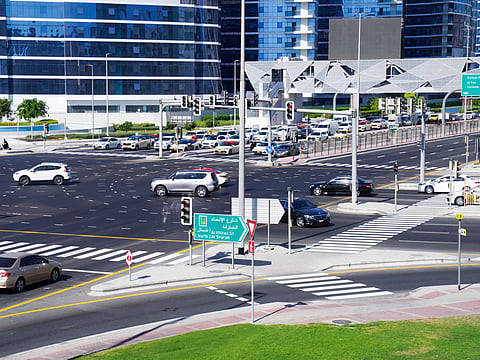Smarter streets: Dubai's RTA unveils AI strategy with 81 projects, initiatives to cut your travel time by 30%
New strategy to enhance productivity, improve customer satisfaction, says Mattar Al Tayer

Dubai: Dubai’s Roads and Transport Authority (RTA) has unveiled its Artificial Intelligence Strategy 2030, which is expected to cut travel time by up to 30 per cent through intelligent traffic solutions and optimised mobility systems.
Launched during the inaugural Dubai AI Week 2025, the strategy outlines 81 strategic projects and initiative to be implemented over the next five years. It is built around six key pillars: people happiness, seamless and innovative mobility, intelligent traffic management, cognitive licensing, future-proof organisation, and asset excellence.
“RTA’s Artificial Intelligence Strategy 2030 is aligned with the UAE Artificial Intelligence Strategy 2031, as well as local and federal initiatives, including RTA’s sector-specific plans such as the Digital Strategy 2030,” said Mattar Al Tayer, Director General, Chairman of the Board of Executive Directors of the RTA.
“The strategy is designed to enhance human capital in the application and scaling of AI technologies, lead a connected AI ecosystem that promotes resilience and innovation, and firmly position RTA at the forefront of AI-driven transformation across its services, products, and operations,” Al Tayer said noting that the strategy establishes a robust corporate governance framework for AI while strengthening RTA’s technical capabilities in AI and data to keep pace with rapid advancements in the field.
AI-driven tools
The strategy will use AI to make traffic move smarter and faster.
“It is designed to yield a range of measurable outcomes, most notably, reducing travel time by 20 per cent to 30 per cent through optimised traffic signal operations and intelligent pedestrian mobility solutions," he said.
“The strategy targets a 25 per cent to 40 per cent increase in productivity by equipping employees with AI-driven tools, and aims to reduce costs by 10 per cent to 20 per cent through AI-powered platforms supporting asset management, predictive maintenance, and driver assessment.”
Al Tayer noted the strategy further aims to improve customer happiness by 35 per cent and enhance partner compliance by 30 per cent to 50 per cent. “RTA continues to lead in harnessing big data and artificial intelligence. Since the launch of its Big Data Platform in 2017, RTA has maintained its pioneering position in this field, introducing a joint Big Data and AI Roadmap (2021–2025), followed by the launch of a dedicated AI Platform in 2022 to support the efficient and scalable development of AI-driven applications.”
Use cases
Al Tayer underlined that the Big Data Platform plays a pivotal role in managing and streamlining data exchange across RTA’s corporate systems.
“Since its inception, the platform has recorded an annual growth rate of 30 per cent, with total data capacity now exceeding 670 terabytes – the equivalent of more than 235 billion pages. It is integrated with 49 corporate systems and supports over 280 data points, enabling connectivity across diverse data sources within RTA’s operations. The platform has facilitated more than 12 AI use cases and significantly enhanced the operational efficiency of our Enterprise Command and Control Centre.”
Since 2017, RTA has implemented more than 40 big data and AI use cases, including predictive maintenance for buses, sentiment analysis of passenger feedback, forecasting parking space occupancy, and integrating generative AI into its virtual assistant ‘Mahboub’.
“We are currently studying the implementation of 45 additional use cases, including optimising water and electricity consumption in the Dubai Metro and enhancing the public bus network using advanced AI technologies,” he added.
Sign up for the Daily Briefing
Get the latest news and updates straight to your inbox


